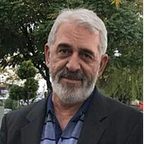Alexander and Tho Al-Qarnayn
(Alexander’s mirror-IV)
With the death of Alexander, my assignment as his Mesopotamian multilinguist was over. I didn’t want to stay within the circle of his competing generals. I went to my olden UR city.
The way King Alexander combined different beliefs seemed to be sarcastic or scornful. It is not unlikely that he was mocking polytheistic religions but kept pace with them to appease conquered societies.
He kept close affiliations with local deities and sacred traditions. He donated to complete a temple of Athena Polias, the patron deity of the city of Athens. Also, he founded the temple of Zeus, the sky and thunder deity of ancient Greek, in Smyrna, western Anatolia. He even sacrificed to the Egyptian deity Amun and the Babylon deity Marduk and preserved its Esagila temple.
King Alexander occasionally fancied himself the descendant of Achilles, the mythologic Greek hero, or claimed an oracle told him that Zeus was his true father! That may be why he wore a helmet with two horns during battles.
Alexander may have used these claims for the great dream of uniting the world under his rule. He began by establishing cities, marrying a foreign princess, organizing interracial weddings, and adopting local customs though his soldiers were less enthusiastic.
However, he signaled a phase of moral decline. That was clear in the torturing and killing of his friend Philotas on suspicion and murdering his father, General Parmenio. He also killed the other close aid and a friend Cleitus for insulting him in a drunken rage. He wasn’t righteous King either. He was ruthless and cruel when dealing with some of the cities he occupied, killing thousands of civilians in his campaigns of spreading terror.
As one of the immortals, I had the chance to read a holy book, After nine centuries (around the year 622 AC) of Alexander’s death, the sacred Quran named a conqueror as (literally “the Two-Horned One”), a righteous person.
Qarnayn (Singular: Qarn) has two other meanings; two nations or two centuries in the standard Arabic language.
Whereas Alexander conquered a vast empire that stretched from Macedonia to Egypt to Persia and India, Tho Al-Qarnayn conquered lands extended between sunrises and sunset.
The Quran narrates the story of how God establishes Tho Al-Qarnayn and gave him of everything a mean: “So he followed a course” to reason every expedition he made.
Being an ideal leader, Tho Al-Qarnayn “followed a course” to create a legal code praising the righteous while punishing the evil on the Earth until the final judgment of humankind. He recognized that his power and authority came from God, and he” followed a course” to respond to and motivate a threatened nation.
Tho Al-Qarnayn mentioned in the Quran as the Conqueror built a wall to defend against the Gog and Magog. He cornered them off. He also reached the primitive tribe that resembled the Fish-Eaters tribe encountered by Alexander’s expedition at the coastal desert.
In later religiously-influenced translations of the Book of Daniel, Alexander took on a sacred hero’s role, converting to Judaism and carrying out God’s will as a “defender of men.” Here it comes close to the Quran description of Tho Al-Qarnayn:
“And they ask you about Tho Al-Qarnayn. Say, “I will tell you something about him.
We established him on Earth and gave him all kinds of means.
When he reached the sunset, he found it sitting on a shady spring and saw people in its vicinity. We said, “O Tho Al-Qarnayn, you may either inflict a penalty or else treat them kindly.
He said, as for who does wrong, we will penalize him, then he will be returned to God, and He will punish him with an unheard-of torment.
But as for who believes and acts righteously, he will have a sufficient reward, and we will speak to him of our command with ease.
Then he pursued a course.
Until, when he reached the rising of the sun, he found it rising on a people for whom we had provided no shelter from it.
And so it was. We had full knowledge of what he had.
Then he pursued a course.
When he reached the location separating the two barriers, he found beside them a people who could barely understand what is said.
They said, “O Tho Al-Qarnayn, the Yajoj, and Majoj (Gog and Magog) are spreading chaos in the land. Can we pay you to build between them and us a wall?”
He said, “What my God has empowered me with is better. But assist me with strength, and I will build between you and them a dam.”
Bring me blocks of iron.” So that, when he had leveled up between the two cliffs, he said, “Blow.” And having turned it into a fire, he said, “Bring me tar to pour over it.
So, they were unable to climb it, and they could not penetrate it.
He said, “This is a mercy from my God. But when the promise of my God comes true, He will turn it into rubble, and the promise of my God is always true.”
[Quran Surat AL-Kahf (The Cave), Chapter15: 83–98]
Even though immortalized through citing in the holy Quran, the last resting place of Tho Al-Qarnayn is unknown. On the other hand, Alexander immortalized himself by founding more than twenty cities named after him, usually built up around previous military forts.
Submitted: December 14, 2020
© Copyright 2020 Ali Al-Zaak. All rights reserved.
Originally published at https://www.booksie.com.
